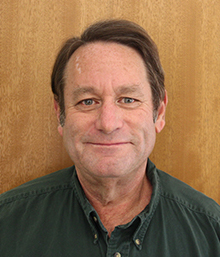Abraham Lincoln’s birthday is Thursday, 216 years after his birth. Let’s celebrate by remembering some of his words that appeared 150 years ago, when on March 4, 1865, Lincoln gave his second inaugural address in Washington D.C. as the Civil War was still being fought but nearing an end. Platte County was bowed by the war as Lincoln began another term. Men from here had fought and died for both North and South.
Innocents here at home were robbed and killed by both sides, and outlaws, in border state troubles. The Border Times newspaper was disseminating news, and according to historian W.M. Paxton, The Landmark in Platte City was beginning to publish.
I doubt if either paper dwelt on the president’s birthday. But surely they got around to publishing all or parts of the president’s inaugural speech, and some rebuttal likely appeared. For you see just like today’s CNN-world, folks back then like to chew on the news and politics.
If Lincoln were to visit today and peruse the newspapers, or perhaps be shown the new world of blogs and tweets and websites, he might be startled at the divisive politics and rhetoric that remains.
“Now, at the expiration of four years, during which public declarations have been constantly called forth on every point and phase of the great contest which still absorbs the attention, and engrosses the energies of the nation, little that is new could be presented,” Lincoln said in his opening inaugural remarks.
That’s the way the national news seems like today sometimes, too.
Missouri was a slave-holding state before the war. In Platte County, slavery had made hemp a major cash crop at the large farms. The Missouri legislature in February, 1865, had approved a constitutional amendment abolishing slavery. Thus would Lincoln’s inaugural words about slavery ring loud in the Platte Purchase, the state’s northwestern corner.
“These slaves constituted a peculiar and powerful interest,” he said. “All knew that this interest was, somehow, the cause of the war. To strengthen, perpetuate and extend this interest was the object for which the insurgents would rend the Union, even by war; while the government claimed no right to do more than to restrict the territorial enlargement of it. Neither party expected for the war, the magnitude, or the duration, which it has already attained.”
Lincoln understood that, like today, theological beliefs did not render politics or war into peace.
“Both (sides) read the same Bible, and pray to the same God; and each invokes His aid against the other,” he said. “It may seem strange that any men should dare to ask a just God’s assistance in wringing their bread from the sweat of other men’s faces; but let us judge not that we be not judged.
“The prayers of both could not be answered; that of neither has been answered fully. The Almighty has his own purposes.”
Lincoln surely knew of the Platte Purchase. He had traveled through St. Joseph to reach the Kansas Territory and stayed at various locales including Fort Leavenworth in December, 1859. His speeches there indicated his opposition to slavery. One of his old sweethearts, Mary Owens Vineyard, lived in Weston, Mo. at the time.
Although old girlfriends and remote counties in the West were unlikely to cross his mind by 1865, as his thoughts would be about binding a nation. Platte Countians surely wondered about Lincoln, though.
One wonders what people greeting each other at church, in a store, at the livery, in a saloon or on a muddy farm road thought when they read or heard Lincoln’s words? It’s funny how his words still apply today in a world with guerilla fighting overseas, slums and gangs in our nation, and intense political division even in our state and county?
The work goes on.
“With malice toward none; with charity for all; with firmness in the right, as God gives us to see the right, let us strive on to finish the work we are in; to bind up the nation’s wounds; to care for him who shall have borne the battle, and for his widow, and his orphan--to do all which may achieve and cherish a just and lasting peace, among ourselves, and with all nations.”
Bill Graham, who lives in the Platte City area with his family, may be reached by e-mail at editor@plattecountycitizen.com.


